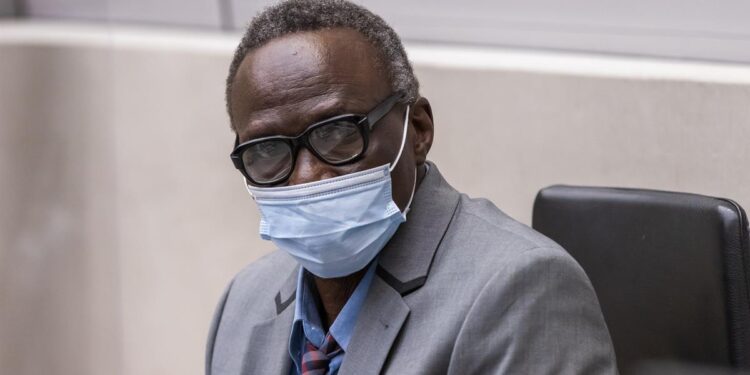By Janet Sankale
The International Criminal Court will hear an update about the situation in Sudan after a military takeover as it presides over the second status conference in the case of former Janjaweed commander Ali Muhammad Ali Abd-Al-Rahman on November 12, 2021.
Trial Chamber I’s order setting the agenda of the conference also listed the court’s activities, victims’ participation, and trial witnesses among the subjects to be discussed.
Judges Joanna Korner (presiding), Reine Alapini-Gansou, and Althea Violet Alexis-Windsor also said trial preparation, page limit for filings, and possible dates for the next status conference would be on the table.
ICC Prosecutor Karim Khan said the prosecution intends to add 14 new witnesses to the provisional trial list.
He said the prosecution would also give an update on the use of expert witnesses and request the chamber to extend the deadline of submission of applications to February 3, 2022.
The prosecution added that it would update the court on the recent developments in Sudan and their impact on the prosecution’s activities.
The court ordered that a representative from the Registry be available during the conference to give an update on the situation in Sudan, the court’s activities, as well as victims’ participation.
Earlier this month, the ICC Appeals Chamber unanimously rejected Abd-Al-Rahman’s appeal against a decision Pre-Trial Chamber II made on May 17, 2021, on the defence’s jurisdictional challenge (exception d’incompétence).
In a statement read by the Presiding Piotr Hofmański, the court stated that in rejecting the defence’s four grounds of appeal, the Appeals Chamber highlighted, among other matters, that it found no error in the reasons given by Pre-Trial Chamber II defining a “situation” before the court in terms of temporal, territorial, and in some cases personal parameters.
The defence had argued that Darfur, as opposed to Sudan as a whole, does not constitute a “situation” that could be referred to the court pursuant to article 13(b) of the Statute.
The court also found that the defence’s second ground for appeal on non-funding by the United Nations of the activities of the court arising from a referral by the Security Council does not invalidate resolution 1593, which referred the situation to the ICC.
“As for the alleged failure of the Pre-Trial Chamber to take into account the lack of the Security Council logistical and security support to the court in Sudan, the Appeals Chamber finds that the defence has not demonstrated how this alleged error of law relates to the jurisdiction of the court,” said the ruling.
The chamber also referred to the principle of legality, nullum crimen sine lege, which means that a person shall not be criminally responsible under the Statute unless the conduct in question constitutes, at the time it takes place, a crime within the jurisdiction of the court.
The Appeals Chamber further explained that it found that the referral of the situation in Darfur, Sudan, took place in the wake of serious violations of human rights and humanitarian law that were criminalised under international law at the time.
It also found that the crimes under the Statute were intended to be generally representative of the state of customary international law when the Statute was drafted.
Abd-Al-Rahman was transferred to the ICC’s custody on June 9, 2020, after voluntarily surrendering himself in the Central African Republic. His initial appearance before the ICC took place on June 15, 2020. The confirmation of charges hearing was held before Pre-Trial Chamber II from 24 to 26 May 2021 and on July 9, 2021, the Chamber unanimously, issued a decision confirming all the charges brought by the Prosecutor against Ali Abd-Al-Rahman and committed him to trial before a Trial Chamber.
He faces 31 charges of war crimes and crimes against humanity allegedly committed in Darfur, Sudan in 2003.
The opening of his trial is scheduled for April 5, 2022.







